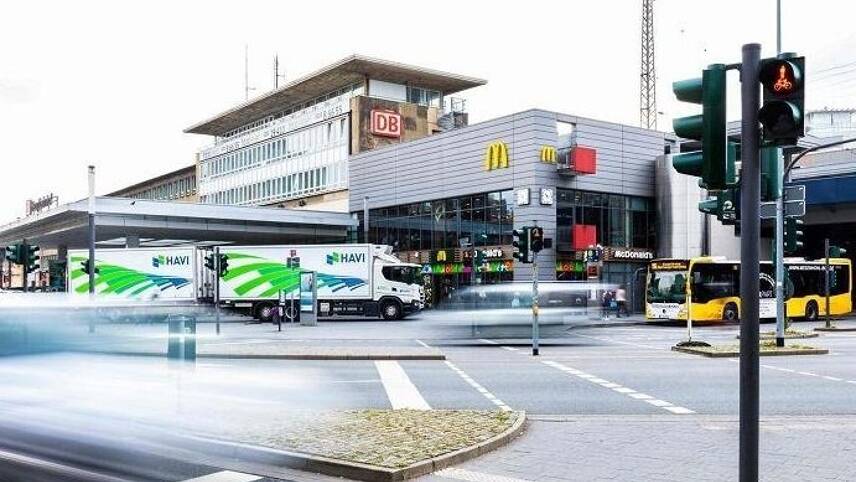Register for free and continue reading
Join our growing army of changemakers and get unlimited access to our premium content

One of HAVI's largest clients is McDonald's
The new goals, which were unveiled on Wednesday (29 May) following approval from the Science-Based Targets Initiative (SBTi), target a 40% reduction in greenhouse gas (GHG) emissions per metric tonne of goods delivered by 2030, against a 2015 baseline.
According to the SBTi, this ambition is in line with the Paris Agreement’s ambition to limit the global temperature increase to “well below” 2C.
In order to reach the new target, HAVI has said it will “work through” its new and existing partnerships with its clients across all 100 of its markets, so it can maximise efficiency and roll out more low-carbon technologies. One of its largest clients is McDonald’s, which it notably working towards its own SBTi-approved goals of reducing direct GHG emissions by 36% and indirect emissions by 31% by 2030, against a 2015 baseline.
The company will also begin disclosing its emissions data through CDP for the first time.
HAVI’s president for logistics Neil Humphrey said the company’s new science-based targets will build on the “solid foundations” it has laid through its efficient & sustainable logistics (ESL) programme, which uses low-carbon technology and renewable energy generation and procurement to minimise the CO2 emissions of its logistics operations. The programme includes an aim to shift 70% of HAVI’s European diesel delivery fleet to alternative fuels by 2021.
“Setting a science-based target will give HAVI’s longstanding commitment to sustainable business practices even more weight and credibility,” Humphrey said.
“We look forward to working with all our customers, partners, industry peers and employees to align our collective efforts towards making the world – especially our cities and working environment – cleaner, healthier and more sustainable.”
Science-based surge
HAVI now sits in a group of more than 160 companies, along with the likes of insurance behemoth Chubb, health and beauty giant L’Oreal and global nutrition, health and sustainable living firm Royal DSM, to have had their 2C goals green-lit by the SBTi.
A further 350+ companies have pledged to set approved targets within the next two years, including confectionary giant Hershey Company. In total, more than 800 firms have publicly voiced their support for the SBTi.
However, progress in getting companies to align their goals with the Paris Agreement’s more ambitious 1.5C trajectory has proven slower. Only four companies – BT, Carlsberg, Tesco and Pukka Herbs – have set verified targets in line with a 1.5C pathway to date.
In a bid to change this trend – in light of the Intergovernmental Panel on Climate Change’s (IPCC) assertation that exceeding 1.5C would leave millions of people facing drought, floods, extreme heat and poverty – the SBTi recently updated its target validation criteria and resource package for businesses. A key change is that a “well-below 2C” pathway will become a minimum requirement, up from the current 2C criteria.
Sarah George


Please login or Register to leave a comment.